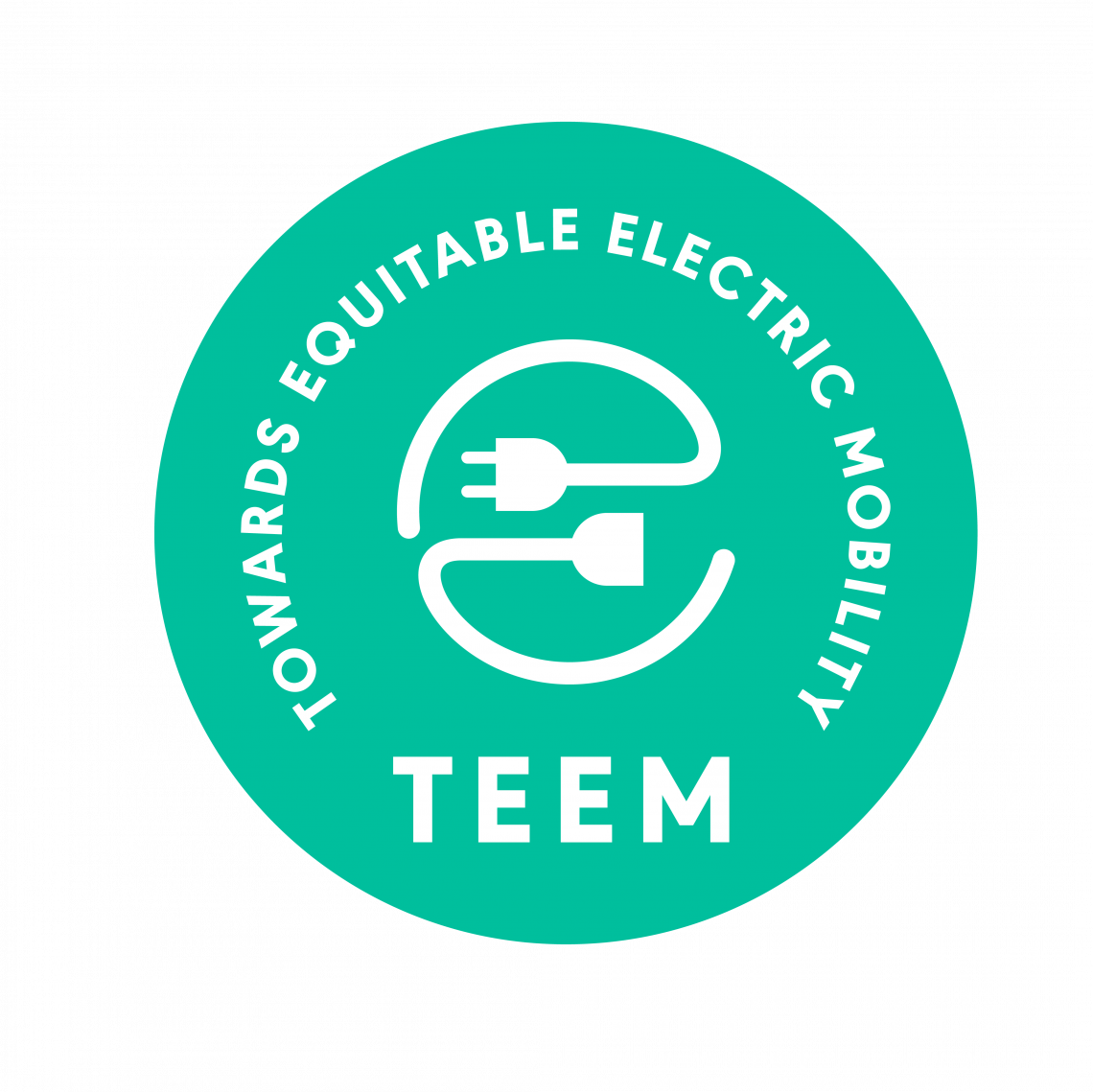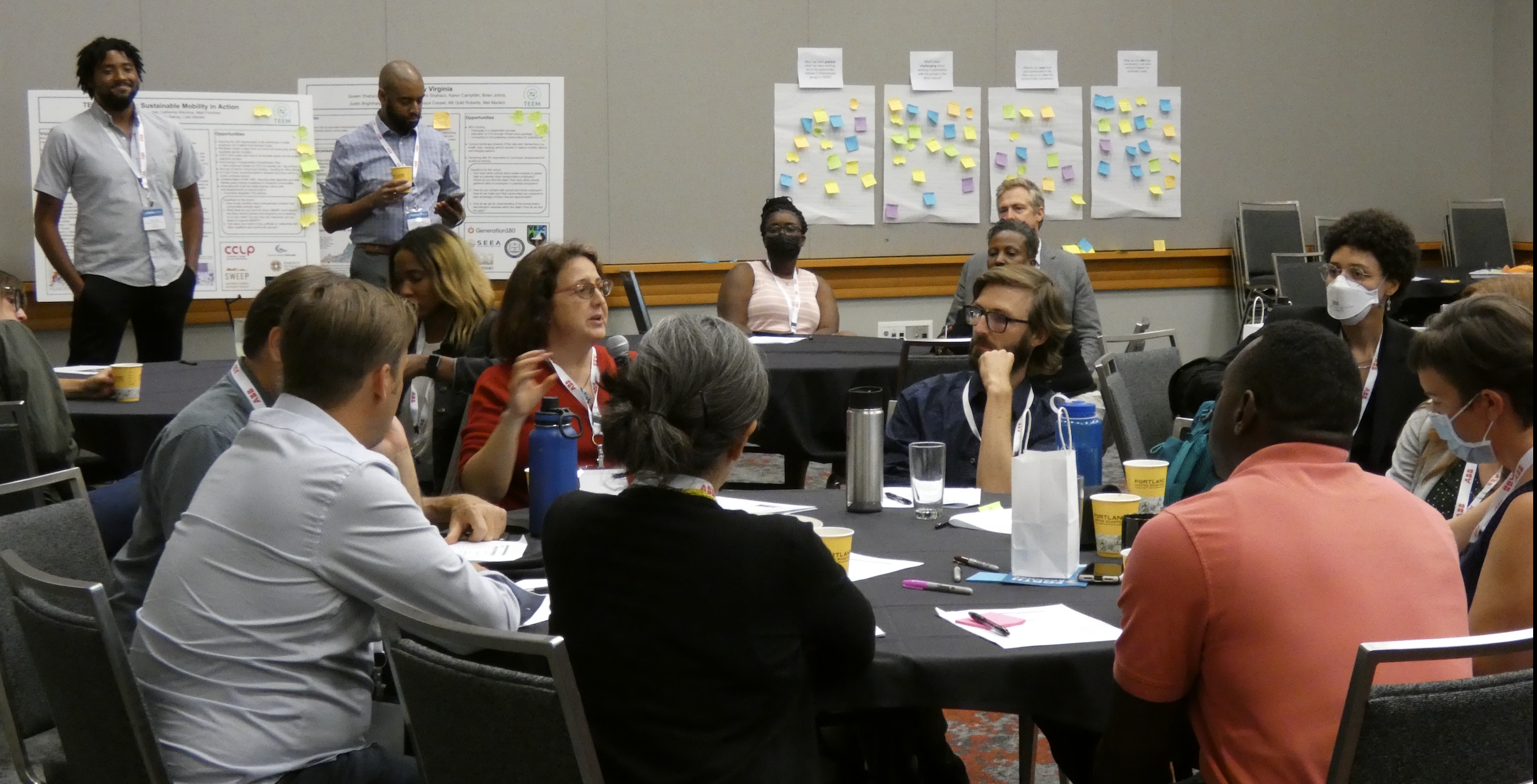TEEM
Towards Equitable Electric Mobility

Towards Equitable Electric Mobility

TEEM - Toward Equitable Electric Mobility
Forth and The Greenlining Institute launched the Towards Equitable Electric Mobility (TEEM) Community of Practice in 2020. TEEM consists of a peer-to-peer community of advocates to share policy goals, build capacity, and develop a mutual commitment towards advancing racial equity in electric mobility and climate change goals. The cohort includes organizations from Colorado (until 12/2023), Illinois, Michigan, North Carolina and Virginia.
Email teem@forthmobility.org for more information.

Purpose
We aim to establish a community of advocates to share policy goals, build relationships and develop mutual commitments towards advancing equity, electric transportation, and climate change goals.
TEEM provides hands-on support directly to member organizations across the U.S. while also building a community among these teams in which they can learn from and support one another across state lines.
Benefits to Participating Organizations

- Build and expand relationships within your state and across states through regular convenings and activities that are planned and facilitated by the Greenlining Institute, Forth, and Upright Consulting Services
- Participate in co-learning opportunities with experts in mobility equity, electric vehicles, policy advocacy, and campaign development and implementation (among many other topics)
- Receive regular support and feedback on your organization’s policy advocacy efforts in the form of writing workshops, equity trainings, and other guided learning experiences
- We are committed to advancing equity in all facets of this project, as such, we provide funding for equity or EJ organizations in each participating state to build their capacity to participate in this project
Fourth Year Cohort
Reports & Resources
Forth and the Greenlining Institute created the Towards Equitable Electric Mobility (TEEM) Community of Practice, with the goal to build the capacity for equity-focused and traditional organizations to work together more effectively on transportation electrification at the state level.

